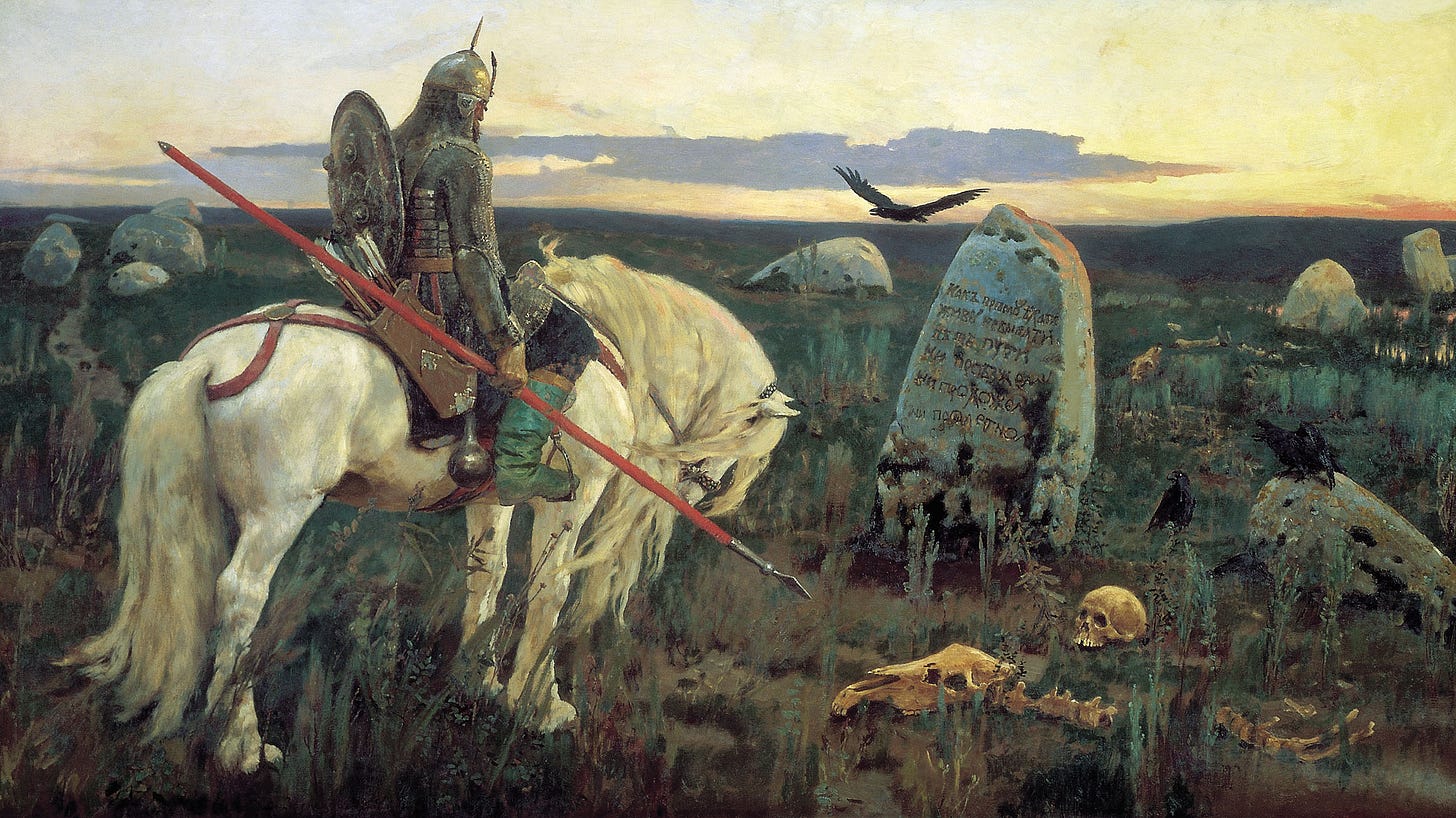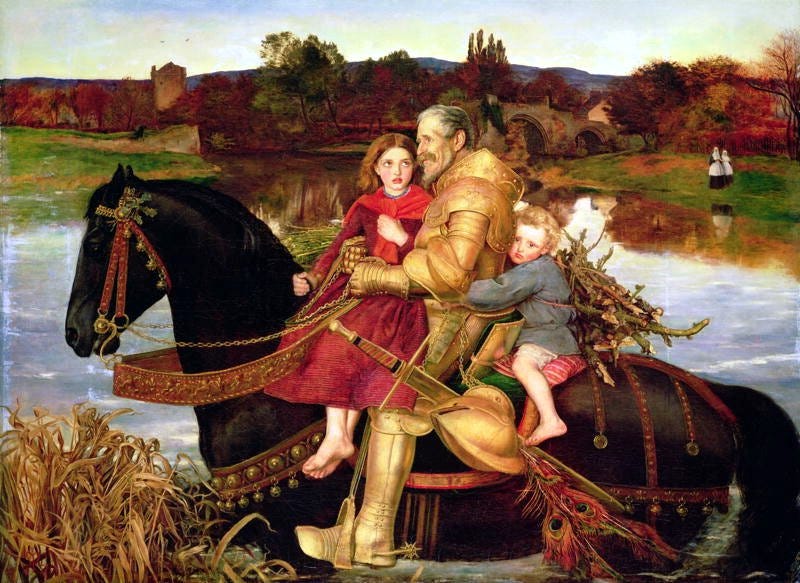Curmudgeon's Corner: White, Black, and Rusty Knights
This is a repost, it was originally published on the Otherwhere Gazette on Aug. 13. 2015
Written by Sanford Begley

A Knight at the Crossroads by Victor Vasnetsov Knights: the term has meaning that has come down from the Age of Chivalry. Of course the meaning has changed somewhat, and keeps evolving. The term black knight originally meant someone who was sworn to no lord and had his shield painted black to cover the heraldry of his previous employer. Really, it meant unsworn fighter. For various reasons it has come to mean a bad guy who has some power. If you realize that “bad guy” has a lot to do with point of view, it is a very reasonable term. I’m sure that Luke Skywalker was seen as a black knight by the imperials. Black knights therefore are largely created by POV. White knights are more a product of other things, and the term has changed even more, especially recently. White Knights were a product of Romances. The shining knight on the noble steed who rescues the fair maiden and saves the kingdom. Off the top of my head I cannot remember any person historically considered a true white knight. Many people were given that title in retrospect of course. It became the generic for hero, so much so that a TV western in the 50s, Paladin, took both it’s name and some of its symbology from the concept. That has changed in recent times, although those making the changes didn’t intend it. White Knighting as a concept is now someone who champions a cause or a person, without regard to anything except their cause. Every whining little Social Justice Prostitute out there now has her little coterie of White Knights, defending her from attacks by those she has maligned and attacked. Unlike the heroes of the old romances these are not men defending a noble victim from oppressors. These are males who, rather than being heroic, are having trouble with the concept of being a man. And they are hoping that if they defend their chosen Whiner well she will bestow her “favors“ upon them. Sadly for them, the usual reason for her constant whining is that she wants a real man and knows she will never get one. Most of the time she cannot realize that the reason she has to settle for white knights or other women is because of the same whining that brings her attention, and makes real men walk off in disgust. The other modern type of white knighting is championing a cause or side in the cultural wars of today. This championing is done without regard to honor or right, and usually for some ulterior purpose. A really good example of this that all geeks know something of is the behavior of those, male or female, wanting to become SMOFs. These people cannot abide the thought of anyone pointing out the negatives of any con. No matter how blatant. Even if the “attacker” is wanting to support the con and change the bad things to good. This makes one question whether SMOFs are a good thing. The last type of knight I want to talk about is the Rusty Knight. I got this term from a Travis McGee novel by John D. MacDonald. I am not the only man of my age that uses the term. I’ve heard a lot of men talk about it. Basically it is the guy who has lived life, and tried to live it well, but has been beaten down by the normal losses that come with living. We still want to mount our noble steed and charge into the fray doing noble deeds and championing the right. Life has taught us that our noble steed is either a nag or a donkey, and our lance a bent and twisted stick. Our own infirmities keep us from sitting straight in the saddle, and we cannot see our glorious road straight to victory. Still when we see injustice we don the rusty and damaged armor, strap our broken swords onto our hips, drag our bodies into the saddle, and charge into the fray. What constantly amazes us is how often we still manage victory.

Sir Isumbras at the Ford, by John Everett Millais Header photo attribution: Rusty Knight by Beardly.




